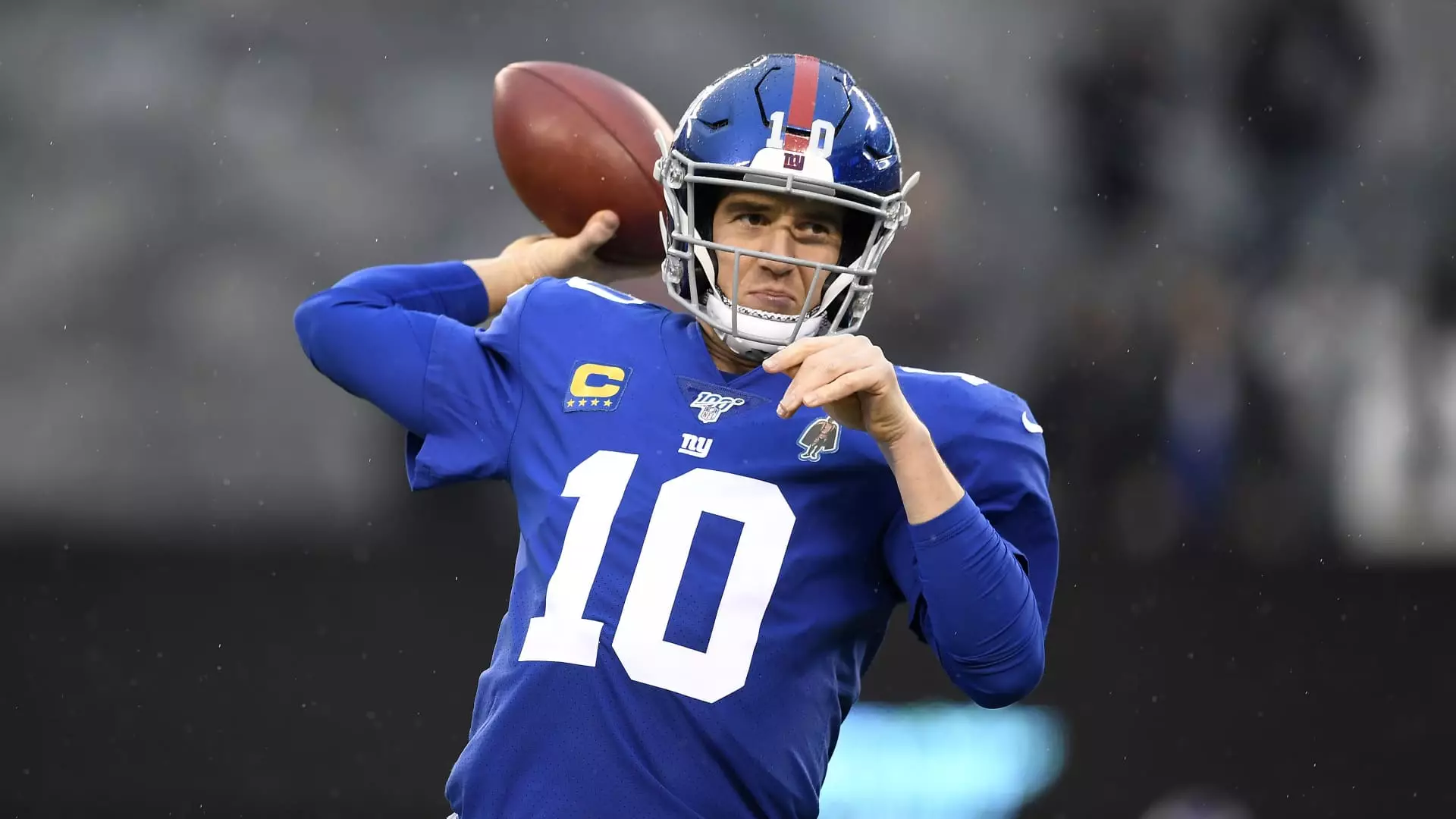Eli Manning’s recent admission of being “priced out” of buying a stake in the New York Giants unravels an uncomfortable truth about the astronomical valuations of modern sports franchises. As a legendary quarterback and a symbol of loyalty and hard work, Manning’s inability to meet the inflated price tags exposes the hollow myth that sports teams are inherently valuable assets based on their performance or community significance. Instead, what we are witnessing is a speculative bubble driven by an ever-growing appetite for financial dominance and brand expansion, often detached from the realities of the sport or its fans.
The valuation of NFL teams soaring into the billions underscores a bizarre obsession with assets that are ultimately entertainment commodities. These valuations increasingly resemble real estate or tech conglomerates rather than traditional athletic entities. The disconnect lies in the fact that these numbers are inflated by investors and ownership groups who see teams as golden geese, capable of perpetual appreciation, regardless of their on-field success or community impact. Manning’s acknowledgment of his financial limitations isn’t a critique of his personal wealth but a reflection of the widening gap between the true worth of a sports franchise and its astronomical market valuation.
The Cultural and Economic Consequences of Overvaluation
This trend fosters an environment where the essence of sports—team spirit, local identity, and athletic excellence—gets overshadowed by heavy-handed financial engineering. Money becomes the primary lens through which teams are viewed, creating a cultural climate where fans’ emotional bonds are commodified. The fact that even a former NFL star like Manning feels sidelined by these prices makes it clear that the system has moved into a realm of unchecked excess, where the economic oligarchy controls the narrative and the access to ownership stakes.
The NFL, historically rooted in working-class values and regional pride, now appears as a playground for billionaires and private equity firms to inflate their portfolios at the expense of community-centered sports. The recent sale of stakes at record valuations demonstrates a speculative frenzy reminiscent of the 2008 financial crisis, yet with little regulatory oversight or public accountability. Manning’s candidness highlights how the game’s true economic value has spiraled beyond what should be a straightforward sports investment, instead morphing into a lucrative asset class that favors the wealthy elite.
The Rising Influence of Private Equity and Wealth Consolidation
Another troubling aspect illuminated by Manning’s situation is the increasing entrenchment of private equity and speculative investors within the sports industry. The NFL’s recent approval for private equity firms to buy up to 10% of teams signals a shift towards financialization, emphasizing profits over sporting integrity. These investors view franchises as liquid assets with unending potential for appreciation, ignoring the core purpose of sports: fostering community, promoting athleticism, and providing entertainment rooted in shared cultural values.
This consolidation of wealth threatens to erode the democratic spirit that once characterized sports ownership. When a billionaire or a hedge fund can afford to buy a minority stake, it diminishes the chance for passionate fans or retired athletes—like Manning—to contribute meaningfully to the team’s future. The idea that Manning, with a net worth of hundreds of millions, is “priced out” reveals how greed distorts the market; it’s no longer about supporting sports but about amassing more wealth through sports.
The Broader Social and Political Implications
From a center-left liberal perspective, these developments should prompt critical reflection on the societal values we endorse. The rising valuations symbolize a shift towards a financial-centric view of society, where entertainment franchises are traded like stocks and treated as playthings for billionaires. This trend exacerbates economic inequality, fueling a narrative where access to ownership and influence is reserved for the ultra-rich. Far from being a democratization of sports, it exemplifies corporate greed seeping into the fabric of American culture.
Public attention tends to focus on the spectacle—the games, the stars, the championships—while overlooking the mounting economic disparities and the influence of money on decision-making. Manning’s decision not to pursue a stake, citing affordability and conflicts of interest, underscores that even icons on the field recognize how far professional sports have drifted from their original ideals. As the industry grows wealthier and more detached, the risk is that sports will become less a source of community pride and more a battleground for financial power and privatization. These trends demand a reassessment of what sports truly represent in society—should they be playgrounds for wealth, or arenas for universal human expression and collective pride?


Leave a Reply